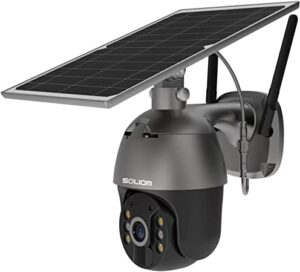Introduction:
A firewall is a computer security system that monitors and controls the incoming and outgoing network traffic based on predetermined security rules. Firewalls can be hardware or software-based and are often used to protect private networks from unauthorized access from the public internet. They can also be used to restrict traffic between parts of a private network.
Who invented firewalls?
The first firewall was created in 1992 by Bill Cheswick and Steve Bellovin while they were working at AT&T Bell Laboratories. Cheswick and Bellovin came up with the idea of using packet filtering to control network traffic. Packet filtering is a technique for examining incoming and outgoing packets and deciding whether to allow or block them based on a set of rules.
How do firewalls work?
Firewalls work by inspecting each packet of data that comes into or goes out of a network and comparing it against a set of rules. If the firewall finds a match, it will either allow or block the packet. If it doesn’t find a match, it will usually just let the packet through.
Explanation:
Firewalls work by inspecting all network traffic that passes through them. They use a variety of techniques to determine whether a packet is safe or not, including looking at the source and destination addresses, the type of data being transmitted, and the port numbers. If a packet is determined to be unsafe, the firewall will either block it or allow it through depending on the security rules that have been set up.
Application-level firewalls work by inspecting the data in each packet to see if it matches a known application protocol. This type of firewall is very effective at blocking unwanted traffic, but it can also block legitimate traffic if it is not configured correctly.
Circuit-level firewalls work by monitoring the connection between two devices and only allowing traffic that is part of an approved connection. This type of firewall is less likely to block legitimate traffic, but it is more difficult to configure correctly.
What are the different types of firewalls?
There are several different types of firewalls, but the two most common are software firewalls and hardware firewalls.
Software firewalls are usually installed on individual computers and control traffic going in and out of those computers. Hardware firewalls are usually installed on routers and control traffic going in and out of an entire network.
Why firewall is important?
Firewalls are important because they can help to protect your network from attacks. By blocking unwanted traffic and only allowing traffic that is part of an approved connection, firewalls can help to keep your network safe.
What are the benefits of using a firewall?
Some of the benefits of using a firewall include:
Firewalls can help to increase the security of your network by blocking unwanted traffic and only allowing traffic that is part of an approved connection.
Firewalls can also help to improve the performance of your network by blocking unwanted traffic and reducing the amount of data that needs to be processed.
Firewalls can be customized to meet the specific needs of your network. This allows you to control exactly what traffic is allowed in and out, which can help prevent many attacks.
What are the disadvantages of using a firewall?
Firewalls can also have some disadvantages, including:
Difficulty in the configuration:
Firewalls can be difficult to configure correctly, which can lead to problems with legitimate traffic being blocked.
Increased costs:
Firewalls can also increase the costs of your network by requiring additional hardware or software.
Complexity:
Firewalls can add complexity to your network, which can make it more difficult to manage.
Blocking legitimate traffic, which can cause problems for users trying to access certain resources
Creating a false sense of security, which can lead to complacency about other security measures
Requiring ongoing maintenance and updates to keep up with new threats
Introducing additional complexity to a network
Do I need a firewall?
There is no easy answer to this question. It depends on many factors, including the type of network you have, the types of devices that are connected to it, and the level of security you need. If you’re not sure whether you need a firewall, it’s always best to consult with a qualified IT professional.
Conclusion:
Firewalls are an important part of any computer security system, but they are not a perfect solution. They can sometimes block legitimate traffic, and they may not be able to stop all attacks. However, they are still the best defense that we have against unauthorized access to our networks.






Related Posts
A Comprehensive Guide to Web Application Firewalls (WAFs)
Charge Up Your Security: Protecting Your Electric Car from Hackers and Thieves
Guide to Vulnerability Management